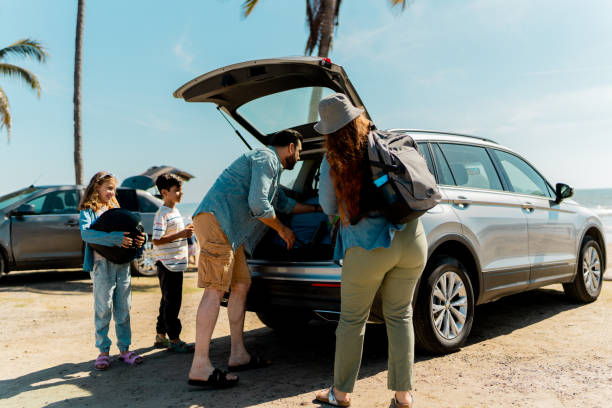Traveling by car offers a sense of freedom and adventure, and it comes with risks, including the potential for accidents. Whether on a scenic highway or a bustling city street, passengers and drivers must remain aware of their surroundings and follow safe driving practices. Car crashes can lead to physical injuries and emotional and financial burdens. Travelers must understand the complexities surrounding automotive accidents, including their causes, preventive measures, steps to take after a collision, and available legal assistance.

Understanding the Causes of Car Crashes
Car crashes may arise from numerous factors, including human error, environmental conditions, and mechanical failures. Distracted driving is one of the predominant causes, with activities such as texting or adjusting the radio diverting attention from the road. According to the National Highway Traffic Safety Administration (NHTSA), distracted driving led to 3,142 deaths in 2019. Intoxicated driving, as well as driving under the influence of drugs, significantly increases the likelihood of a crash, leading to impaired judgment and slower reaction times.
Weather conditions contribute to accidents, particularly in rain, snow, or fog, where visibility and road grip are affected. Mechanical issues like worn-out brakes or engine malfunctions can further increase the risk. Understanding these causes enables travelers to take proactive steps to minimize their chances of involvement in a crash.
Preventive Measures for Safe Driving
To maintain safety on the road, employing preventive measures is important. Regular vehicle maintenance is crucial; ensuring that brakes, tires, and lights function properly can prevent many accidents. Drivers should avoid distractions by silencing their phones and limiting interactions with passengers while driving. Alcohol and drugs should never mix with driving, and travelers should plan for safe transportation alternatives if they plan to indulge. Keeping a safe distance from other vehicles is another vital strategy. Maintaining a buffer zone can provide necessary reaction time in emergencies.
Utilizing seat belts reduces injury severity, and all passengers should be reminded to buckle up before embarking on a journey. Educating yourself about local driving laws can enhance safety for travelers in new areas. By preparing ahead, travelers can significantly reduce the likelihood of accidents.
What to Do After a Car Crash
Being involved in a car crash can be an overwhelming experience; knowing how to act can make a significant difference. The priority should always be checking for injuries. If anyone is injured, calling emergency services is imperative. Documenting the scene is crucial; take photos of the vehicles, the surrounding area, and any relevant traffic signs or signals. Exchanging information with involved parties, including names, contact details, and insurance information, is vital for future claims.
Filing an accident report with local authorities will create a record of the incident that can be invaluable for insurance claims if fault is disputed. It’s wise to refrain from admitting fault at the scene, as this could complicate the claims process later.
Understanding Your Insurance Coverage
Insurance policies can vary widely. Travelers need to understand what their coverage entails. Knowledge of the types of coverage, liability, collision, and comprehensive is crucial for making informed decisions. Liability insurance protects against damages to other parties in an accident, while collision insurance covers your vehicle regardless of fault. Comprehensive coverage handles damages outside the scope of collisions, like theft or natural disasters.
For travelers, knowing the requirements of the state they’re in regarding minimum insurance can prevent legal complications. When renting a vehicle, reviewing rental insurance options provided by the rental company can ensure adequate protection during your trip. Understanding your policy allows travelers to make sure they’re sufficiently covered in various scenarios.
The Role of Legal Help in Auto Accidents
Seeking legal assistance after a car crash can often be a necessary step in navigating the complexities of claims and potential lawsuits. An attorney specialized in personal injury law can provide insights into legal rights and assist in areas such as filing insurance claims and pursuing compensation for damages. Professional legal help often leads to a more favorable outcome during negotiations with insurance companies.
Personal injury attorneys are adept at gathering evidence, interviewing witnesses, and constructing compelling cases, which may increase the likelihood of receiving fair compensation. It’s wise to consult with professionals such as those at Ramsey Law Group early in the process to understand all options available. Remember that time limits exist for filing claims, so prompt action is beneficial.
Dealing with Emotional Aftermath
The emotional impact of a car crash can be just as significant as physical injuries. Survivors may experience anxiety, depression, or post-traumatic stress disorder (PTSD) after an accident. Travelers need to prioritize their mental well-being following an incident. Seeking support from friends or family can provide comfort, but professional counseling may help in processing trauma.
Engaging in stress-relieving activities such as exercise, meditation, or journaling can foster emotional healing. Awareness and acknowledgment of feelings are crucial steps in recovery. Should feelings of distress persist, professional help can guide individuals through the process of coping with the aftermath.

With proper knowledge of car crash causes, preventive measures, and the importance of legal help, travelers can navigate the complexities involved with confidence. Investing in personal safety and being aware of legal rights will empower individuals to handle potential accidents more effectively.
Published by HOLR Magazine.


